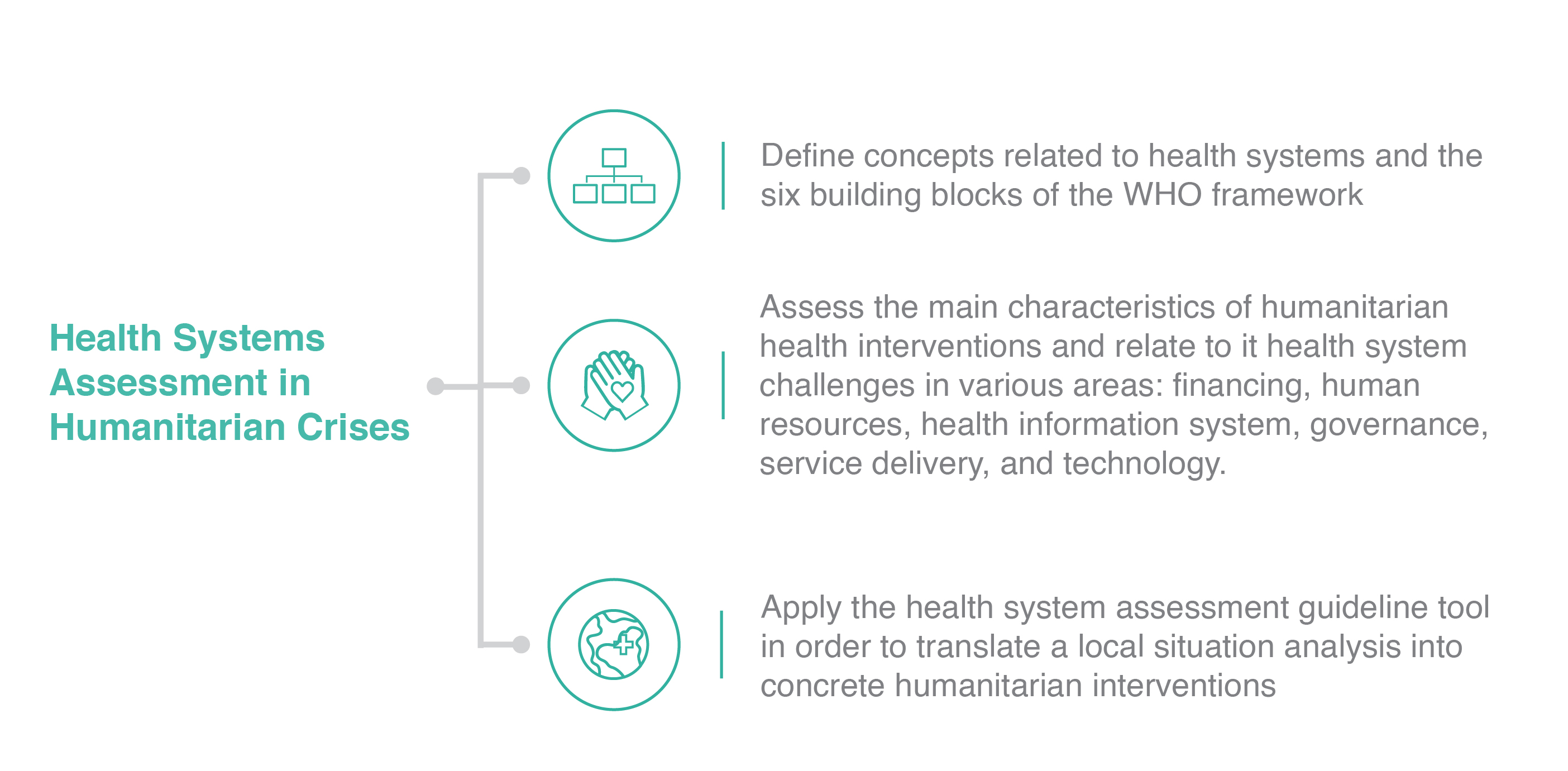Health Systems Assessment in Humanitarian Crises
The primary purpose of this intensive executive short course, based on the book published by Professor Blanchet, Applied Systems Thinking for Health Systems Research, is to familiarise participants with a health systems approach to healthcare for communities in low and middle countries affected by humanitarian crises through practical, interactive examples and case studies, and taught by experts with humanitarian expertise in low- and middle-income countries during or after humanitarian crises.
This is the only course specifically focused on health system assessment in humanitarian crises and built on the latest available evidence.
- Application Deadline 23 March 2025
-
14 April 2025 - 25 April 2025
- Two weeks
- Online
- English
- 2 ECTS (certification awarded upon successful completion)
-
Full price: CHF 1'700
Partner rate (ICRC, MSF): CHF 1'360 (20% discount)
Special Rate: CHF 850. Available exclusively to nationals or staff from local/national NGOs, CBOs, government, INGOs, or IOs in low/middle-income countries (OECD DAC list) with salaries aligned to local living costs. Proof required.
Admission requirements:
- A Bachelor’s degree or equivalent from a Swiss or foreign university;
- At least two years of relevant professional experience;
- Excellent command of English (see below)
Documents required:
- CV (Resume)
- Cover letter (explaining what is the reason why you apply for this course and how will the acquired skills help you in your career)
- Employer’s funding agreement, if applicable
- Highest educational qualification obtained
- Work certificate or official document of your current job position
- Proof of English language competence to be dated less than 2 years (see details below)
- Portrait photo (ID format)
- Scanned copy of the passport
Language Requirements
The minimum required English level is B2. Providing a language certificate is mandatory, except in the following cases:
- If you are a native English speaker, please provide a copy of your passport as proof.
- You have been studying in English for at least three years: please provide a certificate from your institution, your transcript or your diploma.
- If you have worked for at least five years in English with MSF or ICRC, please provide a copy of the English test you have undertaken internally with your employer.
Recognized Tests and Scores:
-
- Cambridge English First (FCE) 160-179
- Cambridge English Preliminary (PET) 160-170
- B2 Business Vantage
- IELTS 5.5-6
- TOEFL iBT 72-94
- TOEIC Listening & Reading 785
- TOEIC Speaking & Writing 310
- PTE Geneval Level 3
- PTE Academic 59-75
- Duolingo : 110
- EF SET (CEFR) : B2
More information about the admission process is available on our application page.
“Completing this Executive Short Course in Health Systems Assessment has given me valuable tools to perform health systems assessment in challenging settings, including a good introduction to systems theory. I can recommend this course if you need tools that guide you to analyse the whole picture, which can help you improve health systems in regions and countries across the globe.”
Lene Lundberg, Senior Adviser, Norwegian Centre for E-health Research, 2021 course participant.





Designation: Professor, //Faculty of Medicine, University of Geneva // Director of the Centre